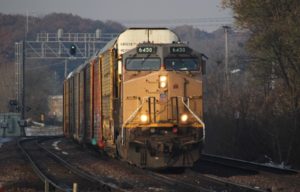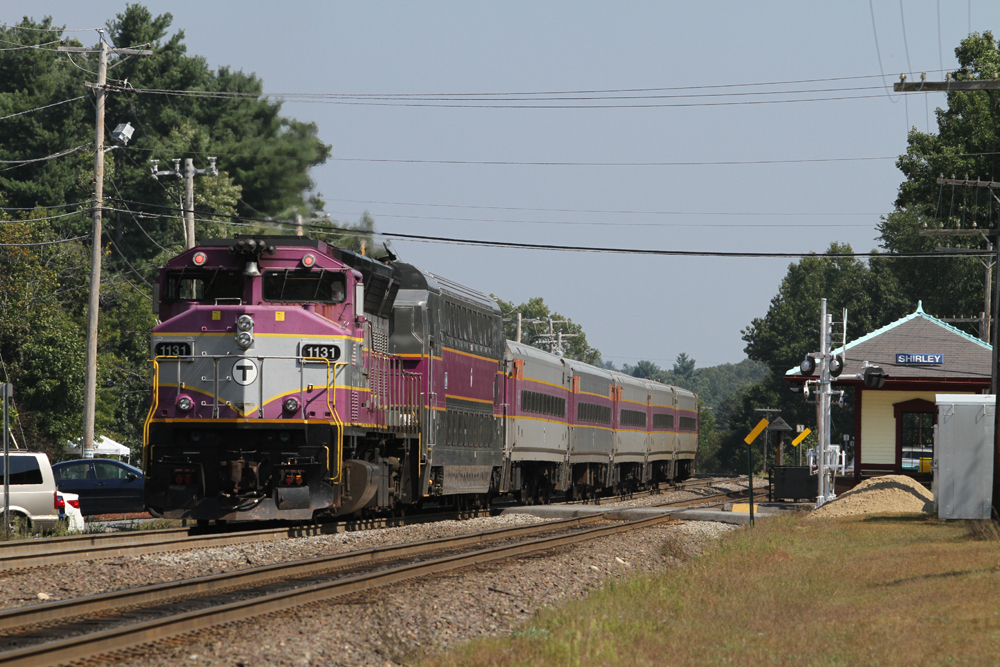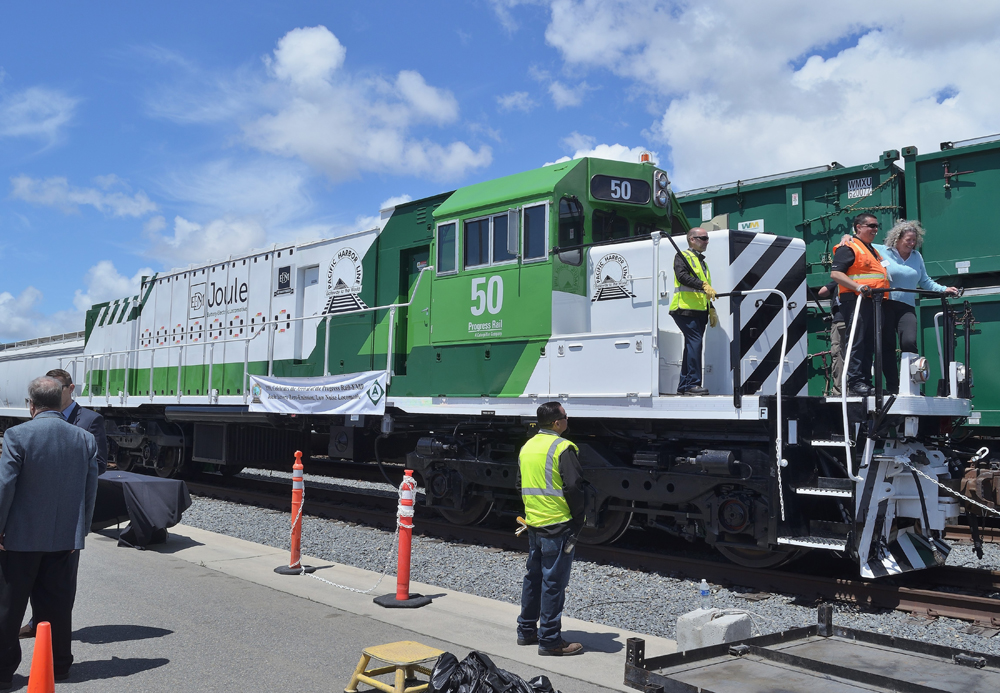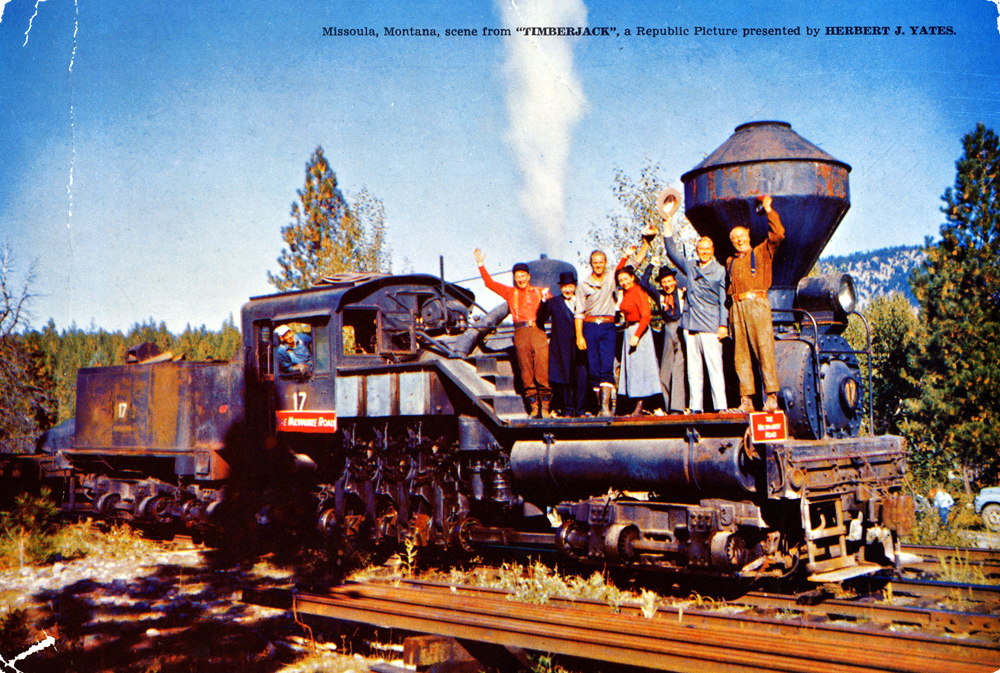With several automakers temporarily halting or slowing production of some car models amid a global shortage of semiconductors, it’s only a matter of time before railroads feel the impact in their finished vehicle traffic.
Several auto assembly plants across North America are affected by the shortage of computer chips that has been caused, in part, by the global coronavirus pandemic.

Among them: Ford Motor Co.’s assembly plant in Louisville, Ky., where it builds the Ford Escape and Lincoln Corsair sport utility vehicles, which will be shut down for at least this week. In San Antonio, Texas, Toyota is slowing production of its Tundra pickup truck by 40% this month. In Brampton, Ontario, and Toluca, Mexico, Fiat Chrysler is idling production of the Jeep Compass, Chrysler 300, and Dodge Charger and Challenger through the end of the month. Honda, meanwhile, is slowing production of the Accord and Civics built at its North American plants.
The effects of the plant shutdowns and slowdowns will ripple throughout the North American rail network.
“It will definitely have an impact,” says analyst Todd Tranausky, vice president of rail and intermodal at FTR Transportation Intelligence, a freight forecasting firm. “There was already starting to be a little bit of a decline before the holidays and this will only make it more pronounced into January. The question will be how long does the disruption last.”
Estimates have varied about how long it will take chip makers to catch up to demand, which has surged as consumers have purchased more electronic devices during the pandemic.
“It appears to be a several-week phenomenon which could cause [first-quarter] expectations in automotive to underperform,” Tranausky said of anticipated rail volumes.
Railroads’ automotive business was reduced by up to 90% during the six-week shutdown of North American auto assembly plants last spring as the pandemic first took hold in the U.S. and Canada.
Several automakers reported sales gains in the fourth quarter despite the overall sales decline for the full year. Research firm IHS Markit estimates that 2021 auto sales will be around 16 million vehicles, which is about 10% higher than North American sales in 2020.
Now the chip shortage will affect a rail traffic segment that had been recovering. “It is one more curveball that automotive manufacturers and the railroads are going to have to overcome,” Tranausky says.
“But a supply shortage is not the only issue facing automotive as dealers seek to rightsize inventory and there is some discussion that dealers will hold less inventory going forward,” he says.
Canadian National, Canadian Pacific, Norfolk Southern, and Union Pacific declined to comment on the potential impact of the auto production slowdown. BNSF Railway, CSX Transportation, and Kansas City Southern did not immediately respond to Trains News Wire emails seeking comment.













